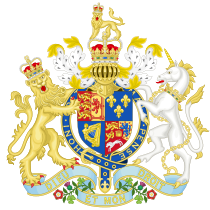
The Making of Bread, etc. Act 1800 (41 Geo. III c. 16), also known as the Brown Bread Act, was a British Act of Parliament that prohibited millers from producing any flour other than wholemeal flour. The Act was introduced as one of a series of measures to deal with a severe food shortage, caused at least partly by the poor wheat harvest of 1799. Labourers and their families at that time lived very largely on bread, the price of which could account for more than half of their weekly wages.[1] The Act proved to be very unpopular, and impossible to enforce.[2] So concerned was the government by the civil unrest that resulted, the Act was repealed after less than two months. One account from Horsham, in Sussex, demonstrates the depth of public feeling:
